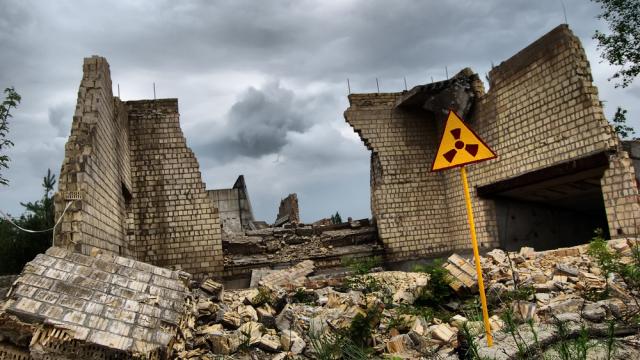We’re more than half a century past 1960, when the Doomsday Clock ticked down to two minutes before midnight. Yet, despite the steady outpouring of movies and TV shows featuring rogue nukes and dirty bombs, fewer and fewer people actively worry about a nuclear bomb going off. That being said: Do you know where and when to take shelter if it does?
I don’t. I don’t have so much as a very basic plan. I’d freak out, surely. Find a working radio and await instructions, I guess. Find the nearest fallout shelter? But where is the nearest shelter? Isn’t it safer inside — oh god!
This kind of clueless panic is exactly what Michael B. Dillon, a British mathematician, is trying to draw our attention to. In a study published today in Proceedings of The Royal Society A, Dillon describes how he’s figured out exacting guidelines for when survivors of a nuclear blast should seek a better shelter against the impending fallout — or whether they should seek it at all.
“Current guidance and prior studies are not consistent as to the timing and conditions under which poorly sheltered individuals should leave their shelters to evacuate or obtain better shelter,” he explains. “Rapidly providing adequate shelter to affected populations could save 10,000 — 100,000 individuals from a fatal exposure to fallout radiation.”
Dillon’s approach is that of a mathematician, and you can take it all in here. But the basic takeaway is this: If you’re trapped in a building that doesn’t provide great shelter against radiation, and you know there’s a better shelter nearby, you should wait in your current location for 30 minutes and no longer — that’s when things get even more dangerous for you, physically. However, if you’re closer than five minutes to better shelter, you should go right away, regardless of conditions outside.
It seems granular to only focus on the issue of shelter. But it raises an important (and kind of terrifying) point: Most of us don’t have a contingency plan for emergencies, much less a nuclear one. Sure, you could argue that it’s unlikely enough (or deadly enough) to make planning a waste of money. On the other hand, the Bulletin of the Atomic Scientists just released their yearly report, saying that we’re now five minutes from the Apocalypse.
So, what do you think? Are you all secret survivalists? Or are you more laissez-we-all-die-anyway-faire about impending doom? [Proceedings of The Royal Society A via Wired UK]
Picture: Sergey Kamshylin
